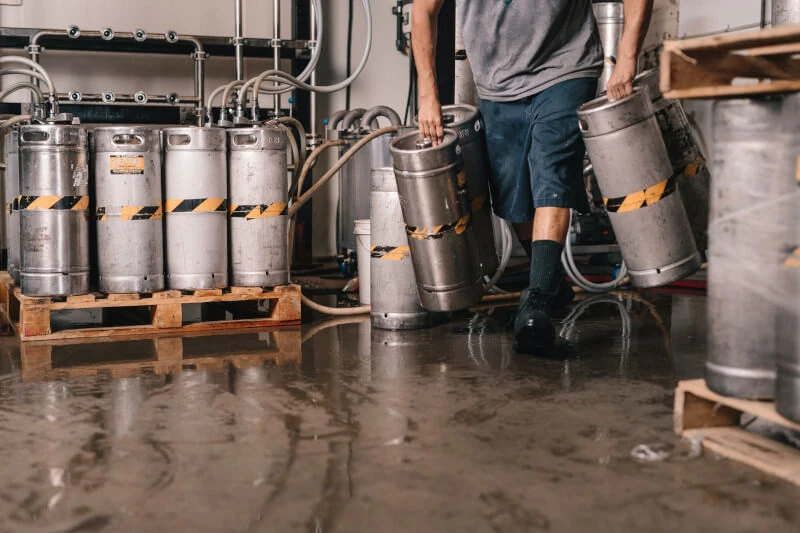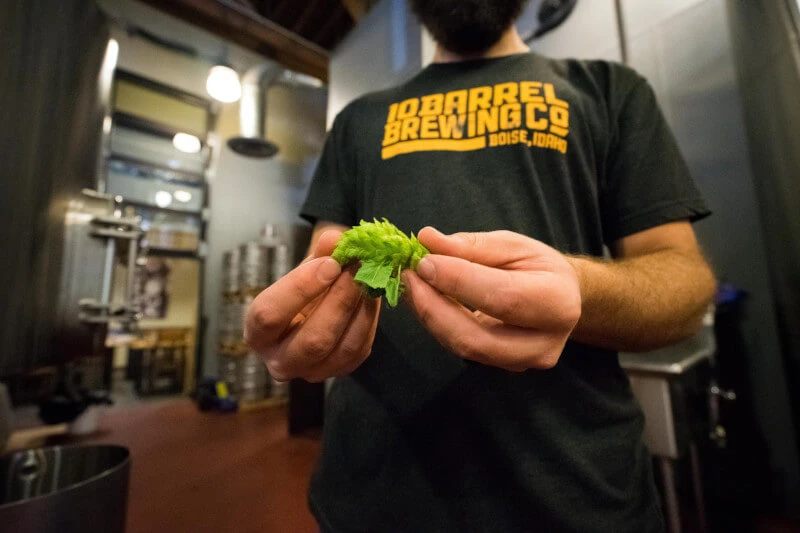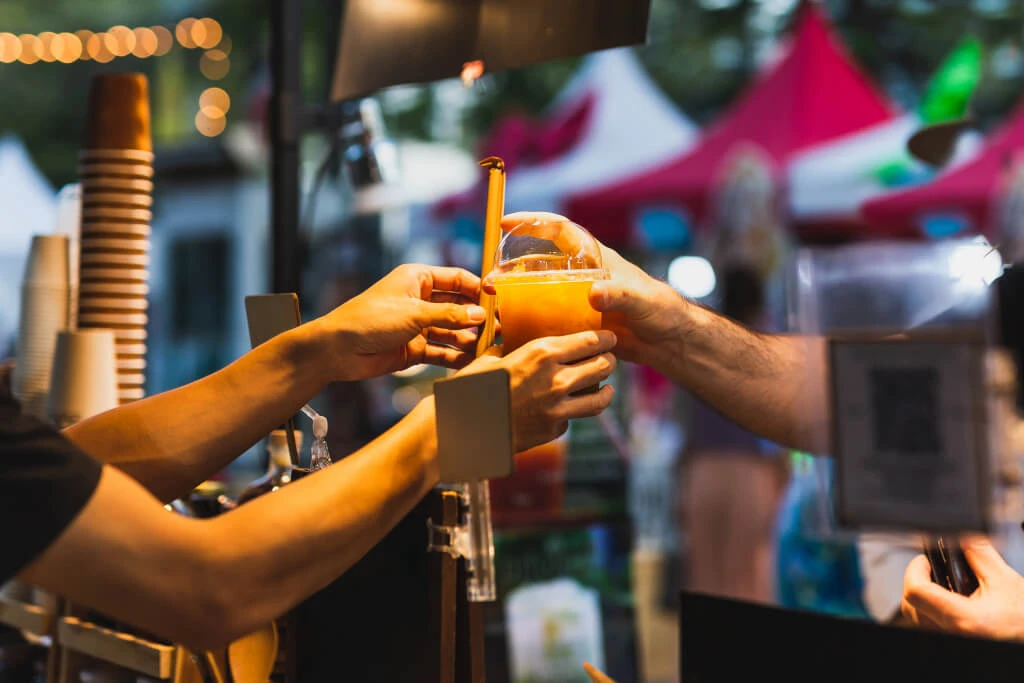The alcohol industry, with its rich history and intricacies, has long been a pillar of the American economy. Yet, the space for small-scale producers, specifically craft distillers, has been challenging, with cumbersome regulations often restricting growth and direct consumer engagement. Now, in an era where e-commerce and home delivery have become normalized, there’s a burgeoning movement among craft distillers for legislative change, allowing direct-to-consumer (DTC) sales.
Historically, the three-tier system – production, distribution, and retail – has governed alcohol sales in the U.S. This framework, established post-prohibition, aimed to prevent monopolistic practices. While its intentions were noble, it often left craft distillers at a disadvantage, particularly when competing against larger entities with more established distribution networks.
“Craft distilleries contribute in terms of unique flavors and innovation as well as job creation and community development,” notes Rachel Thomas, a craft distiller from Oregon. “The inability to sell directly to consumers, especially in a digital age, severely restricts our potential.”
Craft distilleries, unlike massive alcohol conglomerates, often rely heavily on local sales, tasting room visits, and tours. The COVID-19 pandemic, with its shutdowns and restrictions, highlighted the vulnerabilities of this model. For many, pivoting to online sales or local deliveries became a survival mechanism. Yet, existing legislation often proved a barrier.
The American Craft Spirits Association (ACSA) indicates that in 2020, while overall spirits sales grew by approximately 4.3%, craft distilleries saw a decline of 10%. Direct sales could very well be the buoy to prevent such downturns in the future.
Bill Sanders, a lobbyist for the alcohol industry, remarks, “It’s a push for fairness. Wineries have, in many states, enjoyed the privilege of DTC sales. Why shouldn’t distilleries, especially when they play such a vital role in local economies?”
This disparity between wineries and distilleries has been particularly pronounced in states like California. While wineries have thrived with DTC sales, especially to out-of-state consumers, distilleries haven’t been granted the same opportunities.
While opponents argue that easing DTC restrictions might encourage irresponsible drinking or bypass important taxation checkpoints, proponents believe that with the right oversight, these concerns can be mitigated. After all, other sectors have evolved with technology and market demand. While the craft distilling industry is actively advocating for Direct-to-Consumer (DTC) sales, a clear question emerges: Why has the wine industry, particularly wineries, been favored over distilleries for DTC rights?
Perception and Tradition
One cannot overlook the longstanding cultural perceptions attached to different alcoholic beverages. Wine has often been viewed as a beverage of moderation, associated with meals, special occasions, and even health benefits. Spirits, on the other hand, bear a more contentious reputation, linked in the past with public intoxication and health concerns. Could these deeply ingrained perceptions have influenced legislation, leading policymakers to restrict DTC sales for spirits while allowing them for wine?
Regulation Intensity and Origins
Post-prohibition regulations have always been tougher on spirits than on wine. Historically, spirits were taxed higher and regulated more stringently due to their higher alcohol content. The legacy of these regulations, combined with local lobbying and interests, could have slowed the adoption of DTC sales for distilleries. But is this stringent regulation still justified in today’s marketplace?
Taxation and Revenue Concerns
Taxation is a significant aspect of alcohol sales, and spirits are generally taxed at higher rates than wine. Authorities might be concerned that DTC sales for spirits would lead to lost tax revenue or tax evasion, especially if shipped across state lines. While wineries have navigated these waters with labeling, reporting, and remitting taxes, the challenge seems more pronounced for the spirits industry. But with the right technology and oversight, couldn’t this hurdle be overcome?
Potential for Misuse
Some regulators argue that the higher alcohol content in spirits compared to wine poses a greater potential for misuse or over-consumption. By this logic, easier access through DTC might exacerbate public health issues related to alcohol consumption. However, is this argument sound when consumers can easily buy spirits in large quantities from liquor stores?
Maggie Campbell, President of the ACSA, offers a potential solution: “Craft distilleries are more than willing to adhere to strict guidelines, including age verification, quantity limitations, and ensuring all due taxes are paid. We’re seeking a level playing field, not a free-for-all.”
Pros and Cons of Direct-to-Consumer Sales for Craft Distilleries

Pros
- Revenue Boost: DTC sales can open up an entirely new revenue stream for craft distilleries. With the capability to sell directly, they can bypass middlemen and capture more of the profit margin.
- Branding and Customer Loyalty: Selling directly allows distilleries to curate a brand experience. Direct interaction with consumers can foster loyalty and provide opportunities for feedback, improving products and offerings.
- Market Expansion: Instead of being confined to local markets or relying heavily on distributors to get their products to consumers, craft distillers can expand their reach, targeting customers nationwide or even internationally.
- Flexibility in Pricing: Without the need to account for distributor markups, craft distillers can be more flexible in their pricing strategies, offering discounts, bundles, or exclusive products.
- Niche Market Catering: Distillers can create and market specialized batches for specific customer bases, allowing them to cater to niche markets more effectively.
Cons
- Regulatory Hurdles: DTC sales, especially across state lines, involve a maze of regulations and compliance requirements. Navigating this can be resource-intensive.
- Logistics and Shipping: Handling shipping and fulfillment can be challenging. Issues like breakage, age verification, and tracking can become significant challenges.
- Tax Complexity: With different tax rates and structures across states, managing and remitting the correct amounts can be a complex task.
- Market Saturation Risk: As more distilleries adopt DTC sales, the market might become saturated, making it harder for individual distilleries to stand out.
- Potential Backlash from Distributors: Moving to DTC might strain relationships with existing distributors, potentially affecting other distribution channels.
There’s also a Consumer Aspect to Consider
With the rise of specialty cocktails, home mixologists, and a desire for locally sourced, unique spirits, consumers are pushing for more access to craft products. The inability to purchase these spirits directly, especially if they aren’t available in local liquor stores, is frustrating for many enthusiasts.
“Whenever I travel, I love visiting local distilleries,” says Karen Mitchell, a spirits enthusiast from Texas. “It’s disappointing when I find a unique spirit I love but can’t have it shipped to my home because of outdated laws.”
The Broader Economic Incentive

Supply Chain Boost
Direct sales can lead to increased production. This rise in demand energizes the entire supply chain, from the farmers cultivating specific grains to the manufacturers of elegant glass bottles and custom labels.
Local Job Creation
Beyond the primary roles in distilleries, DTC sales can create jobs in e-commerce management, packaging, and shipping. Small towns, where many craft distilleries are located, can especially benefit from this surge in employment opportunities.
Tourism and Hospitality Synergy
As distilleries grow in popularity, so does the interest in distillery tours, tasting sessions, and related experiences. This can lead to an increase in local tourism, benefiting restaurants, hotels, and other related businesses.
Infrastructure and Real Estate
Successful DTC sales may encourage distilleries to expand their physical operations, injecting capital into local construction businesses and increasing demand for commercial real estate.
Increased Tax Revenues
While there’s concern about lost tax revenue in DTC sales, properly regulated direct sales can still be a robust source of state income. This revenue can then be reinvested into local communities, enhancing infrastructure and public services.
Promotion of Ancillary Businesses
Success in DTC can lead to brand expansion. Distilleries might venture into branded merchandise, collaborate with local artisans, or even open branded eateries or bars. Each of these ventures further stimulates the local economy.
The DTC model isn’t just a sales strategy; it’s a potential linchpin for economic revival, especially in regions that heavily rely on their craft distilleries.
As craft distillers advocate for a shift towards direct-to-consumer sales, they’re not merely seeking survival. They’re pushing for an industry evolution that could benefit producers, consumers, and the broader American economy. It’s high time legislation reflects the needs and realities of today’s market, ensuring that the vibrant craft spirits sector isn’t just preserved but allowed to flourish.

